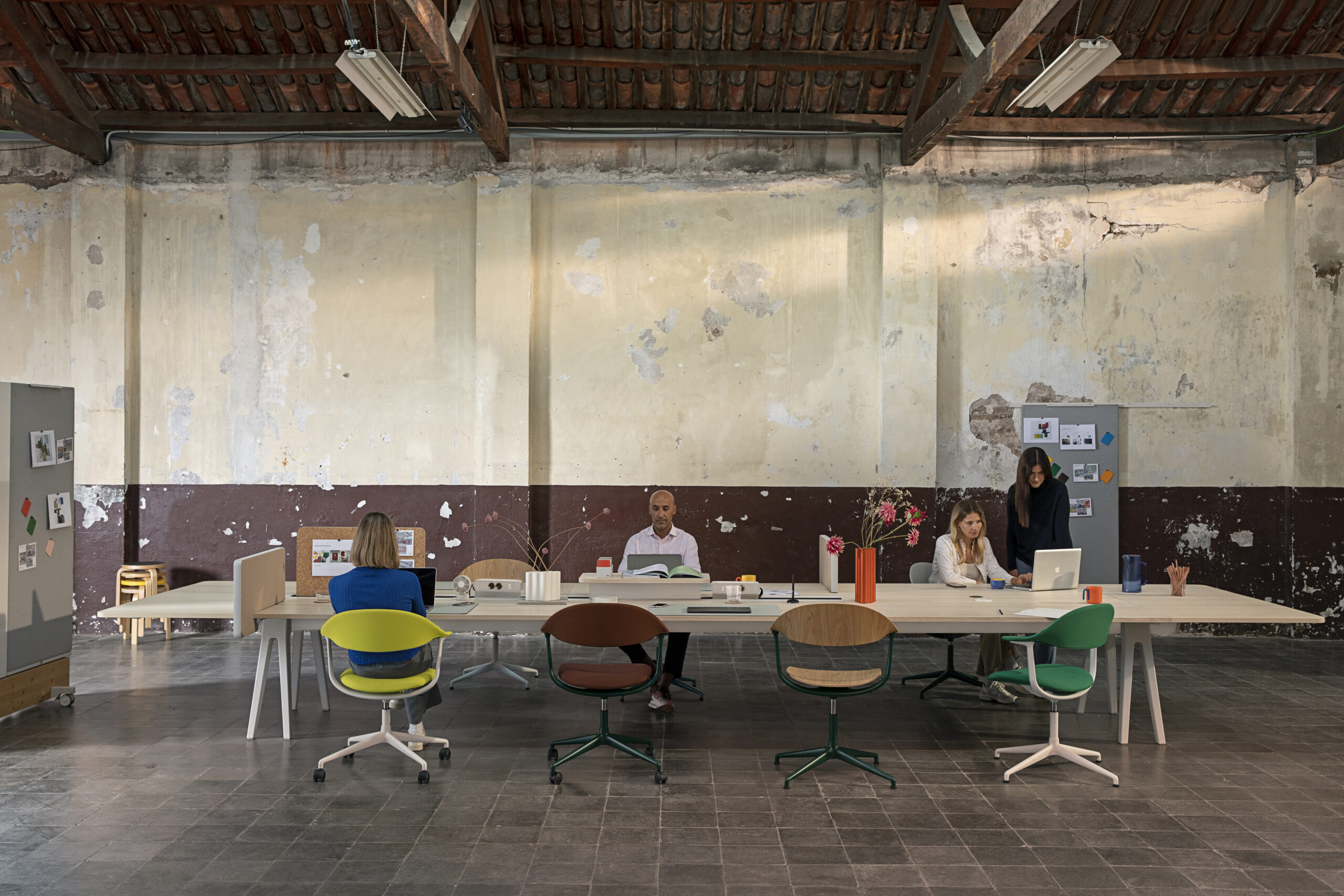 |||
|||
Across design, construction and the property sector, building effective networks between firms and professions is often essential to getting a job done. Architects, engineers, surveyors, property developers – all rely on each other at some point in the process of projects. On the flipside though, this also means that networks are often still key in finding, getting and progressing in roles.
Finding ways of getting to know others in the sector can be challenge, particularly for people starting out in their careers or without the existing connections in property – and, according to Annabel Koeck, associate at Grimshaw, this is why the British Council for Offices (BCO) NextGen programme is so valuable.
“For me, because I am originally Australian, in the UK, I don’t have any of the network that I had in Sydney and that can be quite daunting,” Koeck says. “When I first started attending some of these BCO things, I didn’t really know anyone, but I think the point of difference in NextGen events is that because they’re more curated, you can confidently go by yourself and knows that you will inadvertently be talking to people.”
 Building a network is essential in the property sector. Photo by Hivan Arviz Soyhivan
Building a network is essential in the property sector. Photo by Hivan Arviz Soyhivan
NextGen members are all under 35 and belong to the BCO’s regional bodies – something that means expertise and knowledge sharing isn’t just confined to London, or even just the big cities. Events happen across the country, competitions bring people from across industries together, and the annual awards rewards emerging professionals in each region.
“I think what’s really interesting about the BCO NextGen awards, is that it’s by the next generation. It’s not one emerging property specialist award, but a whole set of categories, and it sort of ends up inadvertently creating discussions about who is up for employer the year, what does the next gen think should be happening in the sector, who is an inspiring leader?” Koeck tells us.
It’s also an outward looking face on something that you first get to know as a set of rules, she says. “Most young people the first time you come across the BCO, it’s because you’re always trying to be compliant with the BCO specifications. When I went on a building tour, that was the first time I realised that there was a community to this.”
 Changing from a university environment to the workplace can be a culture shock. Edwin Andrade
Changing from a university environment to the workplace can be a culture shock. Edwin Andrade
One of the biggest challenges for people starting out in design and architecture is “getting your foot in the door,” Koeck says, based on her own experiences and those of the people she works with who are still at the start of their career. “In my team, the number one challenge they mentioned is that – it’s the biggest issue in architecture and design, particularly because it’s such a network-based industry, and I think the property industry is still very network based.”
Combating it is important to career progression and growth in the long-term, and is something she says her practice is aware of and trying to change, encouraging the more experienced members of the team to always invite a younger colleague with them to events or meetings, developing an exposure to different parts of the role and industry more widely.
One of the advantages of the BCO and working at a practice with membership, she says, is that it’s often likely that younger members of the team will also get added on to memberships, giving them chance to attend events with their colleagues, building their internal relationships, but also to join the NextGen part of the BCO, with its own activities and advantages.
For Koeck, she says that the relaxed nature of the networking events, particularly in the NextGen section – from building tours to breakfast events – makes it easy to strike up conversation and get to know people in areas that you might not have come into contact with so early in your career. “I went to quite a casual breakfast and I started chatting to people and I realised that actually an organisation that I thought was perhaps a bit intimidating, it was very easy to meet people like us.” In her experience, participating in a BCO NextGen competition has resulted in new friendships with people outside architecture, as well as insights into other parts of the sector, such as surveying.
 The BCO offers a range of NextGen activities, including the competition that Annabel and her team won
The BCO offers a range of NextGen activities, including the competition that Annabel and her team won
The BCO also tackles one of the other challenges of starting out in the industry – getting to know how the industry works and all the technical information that’s required in order to realise a creative idea. “There can be a huge culture shock when you come from university into the workforce. Coming from a degree that’s focused on conceptual thought and critical thinking, it can feel like starting back at square one, Koeck says. “Someone will put the BCO specifications on your desk and say, whatever you’re drawing should be compliant with that, and that’s really where the BCO NextGen can come in – it does help you participate in the conversation and understand what’s behind the technical requirements that are being asked of you, and you can listen to people talk about how they comply when they come up with creative solutions.”
Inevitably, overcoming the challenges of starting out takes time – and says Annabel, thinking about a network more as a set of relationships, rather than a set of contacts. “A lot of people say, oh, you’re so good at networking. And I’m just thinking, Well, that’s because I’m not really networking. I’m talking to people I like!”
One of the BCO’s NextGen committee members talks about the challenges emerging professionals face in the property sector


























